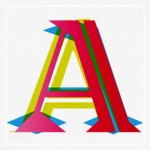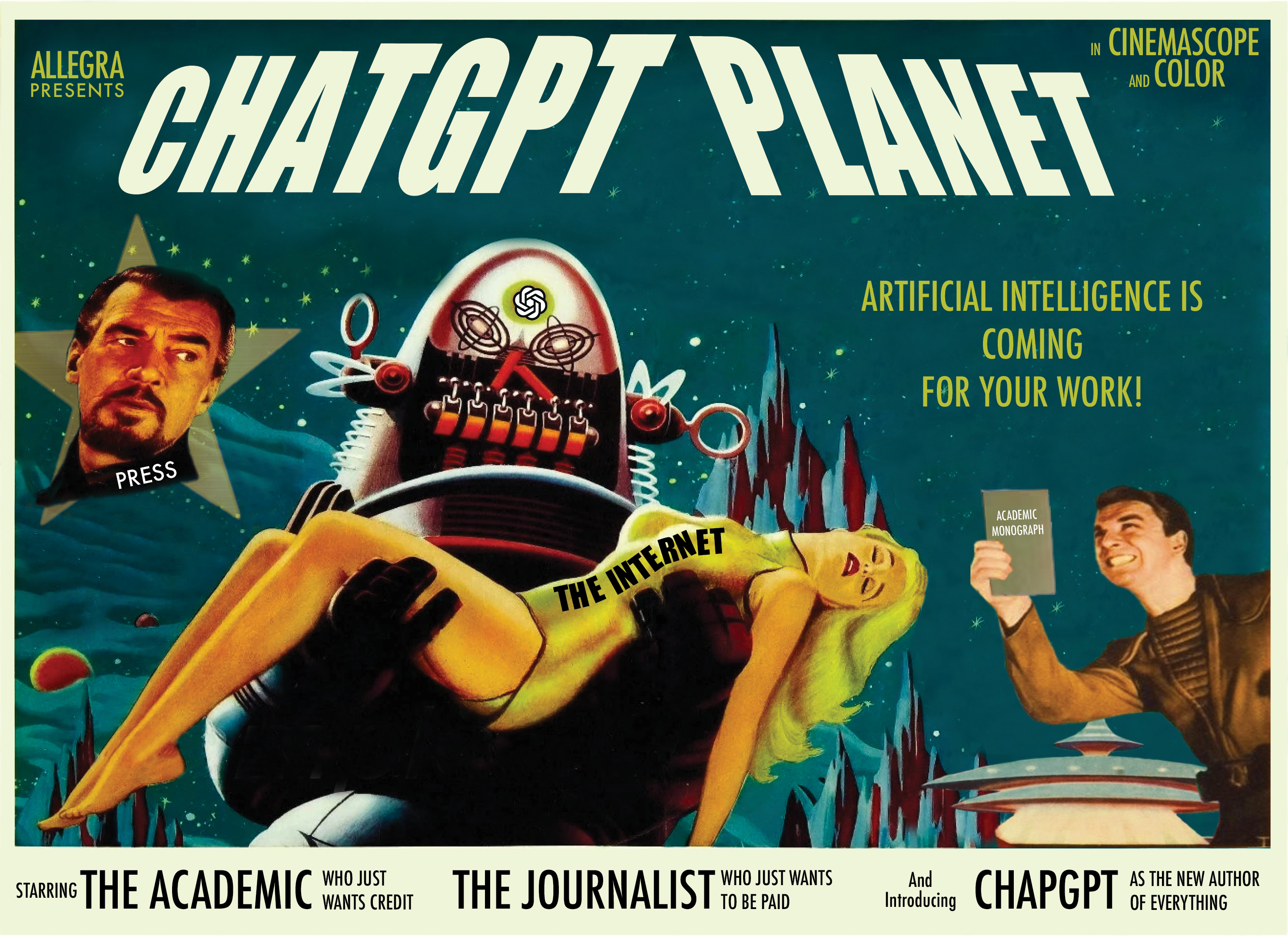Who can believe that it’s almost Spring – where did the time fly?! At Allegra we just realized that we never paused to reflect on all that 2016 brought with it. Let’s fix this now, and also glance into Allegra’s future!
To kick things off, one instantly faces yet another ‘who can believe’ moment: 2016 was already Allegra’s third full year. How can that be – it feels like only yesterday when we launched the first version of our website in fall 2013!
They grow up so fast, also these intellectual labors of love, don’t they!
‘In house’ year 2016 meant a continued stabilization of our work flow. Those of you who have worked with us have likely discovered that our ‘production line’ runs like a well-oiled machine – continually due to our fab ‘ed ass team’ caressingly overseen by our Manager of T&S Andrea.
Thanks once again – we remain in deep gratitude for our team for your dedication and diligence!
Some of you have likely also discovered that sometimes at our editorial end things have been slightly less smooth, on occasion resulting only in the hasty ‘apologies for the delay in getting back to you’ to greet your inquiries of sharing your work with us.
Collective apologies for all such moments! The reason – you guessed it – is all too familiar: being too busy. This is deeply ironic as the ‘slow movement’ is continually one of Allegra’s guiding visions embodied also by our ‘slow food manifesto’.
SLOW was also a central theme for Allegra in 2016 particularly via our thematic week, which featured one of our most read posts of the year: an excerpt of the new book ‘The Slow Professor’.
Inevitably this theme linked up with another one that we simply seem unable to escape: continually intensifying university crisis. Yet, perhaps differing slightly from earlier years, in 2016 we had definitely shifted from a mere crisis mentality toward more determined searches for alternatives as our thematic week in October testified.
The week featured debates on the techniques of emotional resistance as well as collective initiatives to reclaim the universities – via the example of the team led by Tim Ingold & University of Aberdeen. It also included another pivotal opening: the Union of Precarious Academics.
Will these – and numerous other ongoing initiatives – succeed in reversing some of the detrimental dynamics plaguing the academia? Only time will tell!
Yet this much is undisputed also from Allegra’s past year: despite of all odds suggesting the reverse, creative spirits remain vibrant and determined within anthropology!
As merely one embodiment of this was the thematic week ‘Slam that Ethnography’ which featured whimsical – and serious – experiments in ethnographic writing and presentation. The outcome was a delightful and inspiring challenge to how we customarily think of our work, with many insights to keep handy for future writings!
But will these thoughts truly linger on and become ‘things’ with prominence in our disciplinary debates? Very difficult to say – or even more bluntly, somewhat doubtful even.
For 2016 also reminded us of something else: that beyond a doubt many parts of the academia and anthropological debate remain very conservative and predictable – or more candidly still, very white and male.
This was communicated also by our most read essay of 2016, namely the reflection of the gender bias of Didier Fassin’s keynote at EASA2016 by yours truly. The post drew quite a number of comments, some of them highly critical – perhaps justifiably so. The post was written fast, in the course of a few hours, and it did focus largely on ‘externalities’ in discussing who was quoted rather than what at the level of arguments.
Time is seldom, if ever, a justifiably defense for analytical shortcomings – yet when operating with the immediacy of the blog world, it is sometimes a necessity. In order to address ‘the now’, literally, one simply must forego some of the customary cautions that usually accompany our work, buffed with layers of feedback and re-writes. Yet, since the beginning of Allegra we have insisted that on occasion we must put such caution aside and simply SAY something – also via texts that remain a tad rough around the edges.
Ideally such spontaneous ‘blurts’ – fast reactions – will continue to simmer, become more nuanced and eventually mature into slow thinking that potentially makes genuinely lasting contributions to our shared intellectual pursuits.
Continuing such inquiries will thus allow for these swift reactions to acquire a broader role of relevance for our disciplinary field: they will provide fresh injections of thoughts, not tamed by the current fancies of scholarly debate – or so we want to believe.

Image courtesy of pixabay.com
Whether this is true or not, Allegra wants to remain a site for the spontaneous also in the future – SO DO SEND YOUR POSTS OUR WAY to submissions@allegralaboratory.net! Simultaneously our commitment to ‘fast thinking’ serves a crucial role in preserving the wider societal relevance of scholarship and scholars.
With the global political scene becoming more bizarre and scary with each passing month, and the integrity of the media being increasingly jeopardized, our voices are direly needed!
In 2016 Allegra continued contributing to public debate around pivotal world events. This included the thread curated by Sarah Green and realized in collaboration with Social anthropology / Anthropologie sociale around #Brexit. In 2017 we look forward to intensifying our commentaries on current issues – send us your topical commentaries too!
The Brexit thread embodied another defining feature for Allegra’s last year, namely collaborations: in addition to continuing our interactions with numerous EASA networks, we also collaborated with Open Democracy as we cross-posted our virtual round table on irregular migration. We also launched the ‘Projects’ sub-page of the website, including the one around the Wenner-Gren funded workshop on political agency in the Middle East.
And of course there was our joint popular writing contest to find the next Margaret Mead arranged with the newcomer in anthro blogosphere, SAPIENS. The experience of running this competition itself was somewhat – searching for a proper word – ‘odd’. Was it the right choice to invite post submissions via a competition in particular?
Aren’t we seeing enough of competition in the academia as is without having us add to it? And isn’t the very idea of competition ‘anti-Allegra’ thinking of our devotion toward facilitating the flow of scholarly content & embracing the spirit of collegial solidarity? How could one even assess which piece of writing is ‘the best’ – best how, as in ‘analytically riveting’ or ‘bring tears to your eyes’?!
Indeed, we asked ourselves these and many more questions, and it is not certain that we fully agreed. However, all this feels very Allegra too: being open to experiments that divide even us at the editorial board. After all, insistence on unanimity may be stifling too, no matter how whimsical the motivations behind it!
In 2017 the diversity of Allegra’s voice is certain to continue expanding as our editorial board has grown: we are very pleased to welcome Jon Schubert in as an editor, and also to note that our language editor Sarita Fae has been transformed into an Associate Editor – warm welcome to you both & thanks for all your had work!
Allegra’s editorial board has seen also other changes as Antonio De Lauri has assumed the role of editor-in-chief with Julie Billaud as Miia Halme-Tuomisaari has started to focus more on developing Allegra’s visibility & social media presence. She’s assisted by Gennady Kurushin who is doing diverse technical improvements on our beloved website. We are also pleased to welcome our intern Lena Pham who will be assisting in Allegra’s social media presence alongside numerous other tasks.
We look forward to seeing the results of this work soon – the ultimate goal being to allow for Allegra’s content to travel even further.
For this week’s posts we have selected writings that resonate with the unfolding political scene, particularly in the US, in diverse ways. We open tomorrow with a post that has sadly grown only more timely since it was first published in our Brexit thread las summer, namely Jennifer Curtis‘s consideration of the similarities between Brexit and Trump’s – then still looming – victory. The post is a powerful call for nuanced public engagement which anthropology, particularly its political and legal brands, are ideally equipped to offer.
On Wednesday we continue our discussion via a post that – almost unexpectedly – links up with Curtis’s discussion: we share Bradley Dunseith‘s post ‘Being “a good guy with a gun”‘. The post transports readers to pro-gun meetings in the deep US south, to land that is likely foreign to most entertaining leftist liberal inclinations. The post remains at the level of fieldnotes and is thus mostly untheorized. Sharing fieldnotes has been and remains an ‘Allegra thing’ as we believe that they have numerous under-explored uses. These include demonstrating the power of anthropological empathetic description, which can help us to understand the motivations of ‘others’ – and to avoid polarisations entirely.
On Thursday we continue this debate via a review that has – sadly – only grown more topical since it was first published in October 2016: ‘The Borderlands of Race’ by Jennifer Najera, reviewed by David Fazzino. The book discusses the drawing of boundaries and Mexican segregation in a South Texas town. Both the review and the book itself offer much needed context for the current US debate around deportations and walls.
On Friday we conclude this thematic week via another genre distinctive of Allegra: AVMoFA, Allegra’s very own Museum of Obscure Fieldwork Artefacts by taking us back to ‘Breakfast in Aidland’ with Astrid Jamar.
When connected to the continually darkening global political climate with nationalist backlashes all around, this post raises poignant thoughts: what role does ‘the international’ – or the global elites that make up humanitarian and human rights & development regimes – hold in what we see unfolding around us? These are questions that we have not yet asked nearly enough – yet they are questions that we must ask in order to fully grasp what we see unfolding around us.
Once again, anthropology is the very discipline to assist there. We hope that you enjoy this thematic week – and do send us your ideas and post submissions, including the wacky, experimental and even the down-right bizarre!
Featured image (cropped) by Benjamin Disinger (flickr, CC BY-NC-ND 2.0)






